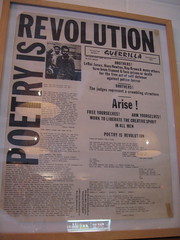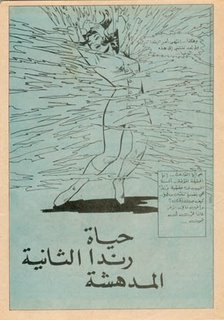Greetings from Austin, en route to ATL

The skies are blue and the weather is warm and I have a sunburn.

Lots of taco-eating. It's wonderful. If you're going to AWP in Atlanta this weekend, be sure to check out the following panels:
Friday, 9AM
Ballroom B, 2nd Floor
Emerging Voices: Arab-American Writers in the 21st Century. (Randa Jarrar, Hayan Charara, Steven Salaita) Arab-American writers have been producing poetry and fiction in the US for over a hundred years, but with the exception of Khalil Gibran, their voices have been marginalized. With the attacks of 9/11/2001 and subsequent war in Iraq , interest in this community has grown, yet its diversity and strength remain hidden from mainstream literary discourse. This panel discusses past and contemporary Arab-American writers, journals, anthologies and cultural festivals, with a special focus on teaching issues in the college classroom.
AND...
Saturday, 1:30
Salon B, 2nd Floor
Writing Islam. (Khaled Mattawa, Raza Hasan, Randa Jarrar) This panel will discuss the difficulties and opportunities of writing poems and stories dealing with the Islamic World. We will talk about the strategies for managing references to political events, places, and people unfamiliar to American readers. As outsiders as well as insiders, we will discuss how we negotiate that position in our writings. Our discussion will raise awareness of an emerging body of poetry and fiction dealing with the Islamic World and the West published in the US .






